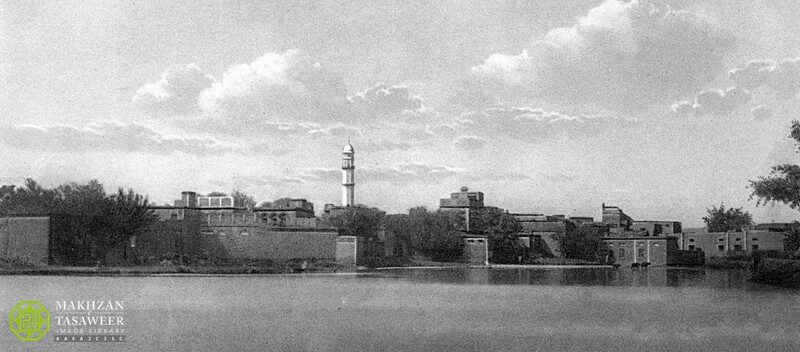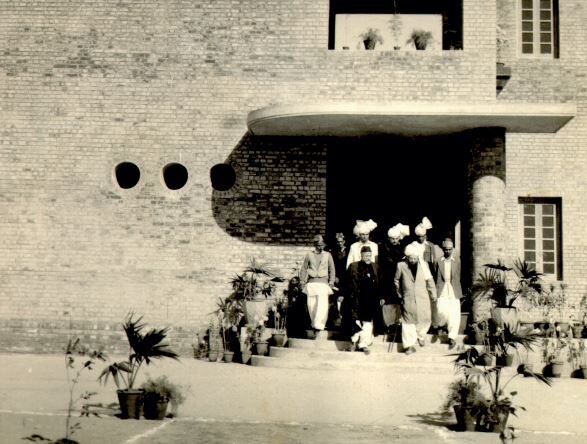Al Fazl, 22 December 1921 & 2 January 1922

22 November 1921
Impartial view on mubai‘een and ghair mubai‘een
Hazrat Khalifatul Masih[ra] said:
“The Paighamis [members of the Lahori Jamaat] always say that we do not allow people to study their views. However, whenever a neutral person studies the writings of the two groups, they decide in our favour.
“Hence, a friend, who received education from Aligarh and is also an LLB and a magistrate in a state, sent a letter requesting to take bai‘at. In it, he writes that as a child, he was acquainted with the Jamaat while he was studying Arabic. He saw in his father’s library a book of the Promised Messiahas. He liked it and showed it to his teacher who said, ‘Do not read this book because these people are faithless.’ Then, his father passed away and his brother directed him to pursue an English education. After graduating from Aligarh, he had to visit a relative to express his condolences, where a person asked him to study the books of the Ahmadiyya Jamaat and also promised to send the list but couldn’t do so. He wrote to Maulvi Muhammad Ali Sahib who sent him the books. He also learned about our disagreements and thus, studied our books as well. Eventually, he concluded that we were in the right and did bai‘at.”
Permissibility of union memberships and strikes
A friend asked if an Ahmadi could be a member of the unions formed by the employees of various governmental departments, such as the railways.
Hazrat Khalifatul Masih[ra] said:
“What is the need for membership? If there is progress, then you will get its fair share as well. Strikes are a moral and religious crime. Becoming a member [of a work union] is not a crime but it gives rise to another evil, so one should avoid it.”
Disadvantages and advantages of not participating in strikes
[A friend] submitted, “When we do not join the strike, the demands of those on strike are accepted. Consequently, the strikers harass us and complain to the officers who accept their [complaints] and so we have to suffer.”
Huzoor[ra] said:
“As those people are in the majority, the authorities, despite understanding our position, are sometimes forced to decide against us. Because if they do us justice, they will have to give up the majority.”
Hazrat Khalifatul Masih[ra] said:
“This is what we want to achieve, that even though we see our obvious disadvantage in not joining the strike, we will not join something which is harmful to morals and faith. The Europeans, declining constantly century after century in faith and morality, have now reached the point where they cannot accept anything without force and clamour. On the other hand, if a person principally considers a strike to be bad, the same authorities will deep down surely think that they are either fools or sycophants. However, they do not understand that the viewpoint of those who think that a strike is principally wrong is far more superior than their point of view. The English people are not against strikes in principle because they do it themselves in their homeland. However, if they condemn it in India, it is because their government is established here, which they think will be weakened by strikes. Thus, we are against strikes simply because we consider them destructive to faith and morals. If we are harmed by not joining these strikes, then it is very little compared to the loss that will occur to our morals and faith after joining them.”
The foundation of government
Hazrat Khalifatul Masih[ra] said:
“Islam lays the foundation of government on morality and faith. Otherwise, if the government is based on agitation or public opinion, the truth is mostly lost. On the other hand, even if there is a representative government, there is no need to seek public opinion through the leaders; rather, a circular should be issued that the government seeks opinion from the people of every village through its officials. In this way, when that step of the leaders will be taken out from the middle, the people will begin to consider the government as their well-wisher. Otherwise, in the current situation, although the government wants to know the opinion of the people, since the mediator is another person, they consider that person as their sympathiser and become anti-government.”

[Difference between] the Khalifa and the president [of Anjuman]
Huzoor[ra] said to Hakim Ahmad Hussain Sahib Lyallpuri, “You have asked a question that what is the difference between the Khalifa and the president of Anjuman when both of them are elected by the people?”
Hazrat Khalifatul Masih[ra] said:
“No doubt, the two seem alike, but the difference between them is similar to the difference between two children, one of whom is sitting on the ground and the other is sitting on the shoulder of a strong gentleman. If both of them want to pluck the fruit from a tree, then it is obvious that the one sitting on the shoulder of a fully grown man will turn out to be more successful than the child sitting on the ground because he will pluck the fruit with his hand through the man’s help. A child sitting on the ground may throw a stone to drop the fruit, but there is no certainty that the fruit will fall by that stone. On the contrary, one who is sitting on the shoulder will surely succeed.
“In the same way, the president of an Anjuman or a government and the Khalifa are elected by people, but the election of the Khalifa takes place under the promise of God. God supports him. There is no promise of divine succour for any other president. For example, the Promised Messiahas would always deliver speeches and he delivered a speech on the day of Khutba Ilhamiyah [the Revealed Sermon] as well, but all other speeches are not deemed revealed and only the Khutba Ilhamiyah is called the Revealed Sermon. Why? Just because there was no divine promise about the other speeches and there was a special command and promise for the Revealed Sermon. Therefore, it is called the Revealed Sermon. Since there is no divine promise regarding other elections, they do not possess such significance as that of the election of the Khalifa because it takes place under divine promise. The president elected by the people may be the cause of God’s wrath, but it never happens in case of the Khalifa.”
(Translated by Al Hakam from the original in the 22 December 1921 & 2 January 1922 issue of Al Fazl)

